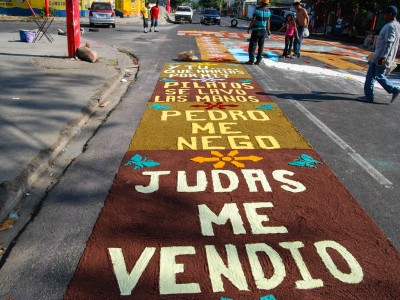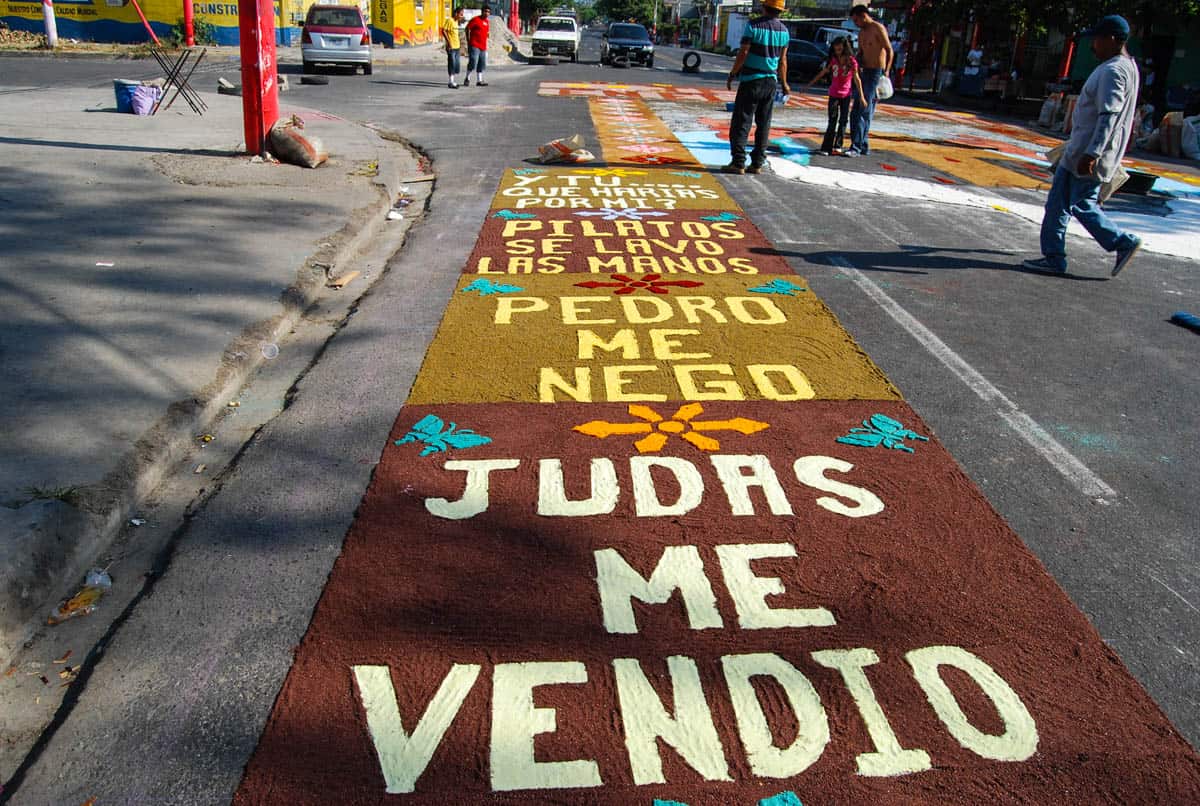Candace Cameron Bure: a Different Practice for Lent

This year for Lent, I’m doing something special, something a little different. And, as you dive deeper into this Year of the Bible, I’d love to invite you into this journey. But before I do that, let me explain why Lent is so meaningful to me.
Continue Reading ›Fasting and Feasting at the Table

As we ate our final Lenten meal, anticipating the feast of Easter Sunday, the grand mystical celebration of life breaking past death, I felt content. Thankful.
Continue Reading ›
Easter in El Salvador
Easter Week in El Salvador is celebrated differently than the way it is celebrated in the United States. In the United States, Easter often includes the Easter Bunny and egg hunts. In El Salvador as well as many other Central American countries, it is celebrated with a much different atmosphere.
Easter feels like summer. The sun shines strong in the skies, the breeze somehow fresh, somehow warm. It is definitely the middle of the dry season in El Salvador, the equivalent of summer in northern lands. Everything around, from sale signs to music, talks about sun and sand. The opportunity to enjoy beaches that are just an hour away from San Salvador is almost here.
For a full week, students are out of school and have the opportunity to enjoy beaches, visit relatives and do nothing; it is almost the equivalent to spring break in the United States. However, there is one unequivocal characteristic that reminds every Salvadoran that it is not just a break, and that there is more than just sun and fun waiting for us during that week in April.
In El Salvador, the week of Easter is Holy Week, and the festivities revolve around Roman Catholic tradition. Roman Catholics account for nearly 60 percent of the population. Protestant (also called evangelical) churches account for slightly more than 20 percent.
Even though El Salvador does not have an official religion, since the time of colonization Roman Catholic traditions have been the most common and most practiced in the country. Easter Week is the most important celebration for the Roman Catholic Church.
“It is slightly different for the Protestant Church” says Sister Wendy, wife of Pastor Rodolfo at the Baptist Tabernacle Church of Majucla. “For most of the children, Easter Week is an opportunity to spend time with their families. People take advantage of this time to go back to their homeland and spend time with their families.”
One of the most important Easter traditions in El Salvador is Lent. During this 40-day period before Easter, named “Cuaresma” in Spanish, people fast, pray and give alms. The last week of the 40 days is called “Bigger Week” or “Holy Week.”
On Good Friday, there are two major processions. Early in the morning there is the “passion,” which is the representation or commemoration of the walk that Jesus took with the cross toward Golgotha. It is finished around noon.

Then in the afternoon, Roman Catholic churches and communities start making rugs on the streets with sawdust, which will later be part of the path where the “holy funeral procession” will pass, carrying the symbolic dead body of Christ.
The making of these rugs represents one of the greatest traditions for the Roman Catholic Church in El Salvador, since entire streets and main avenues in many places of the country are completely closed. The rugs cover entire streets.
Appreciation of the rugs goes beyond religion. For Salvadorans, it is about appreciating the art and about appreciating the effort the people put into making the rugs. For Salvadorans, it is a gift, an offering they are making for Jesus.
Catholic or not, Salvadorans go out into the streets on Good Friday to see the rugs. Apart from this tradition for Good Friday, Holy Week develops differently for Protestants.
For the Evangelical Church in El Salvador, Holy Week is an opportunity to spread the Gospel to as many people as possible. If there is the opportunity to preach the Gospel and carry more people to the feet of our Lord, the church takes advantage of it and tells El Salvador the true meaning of Holy Week.


